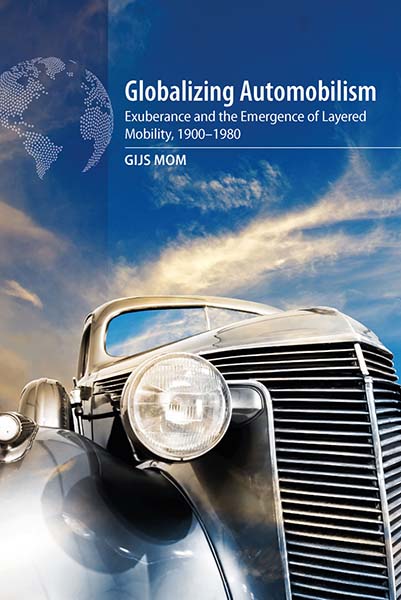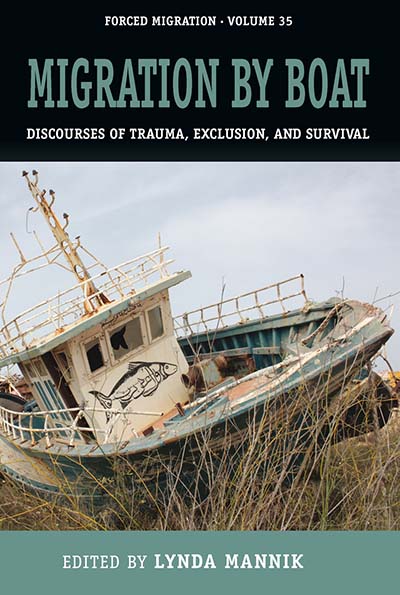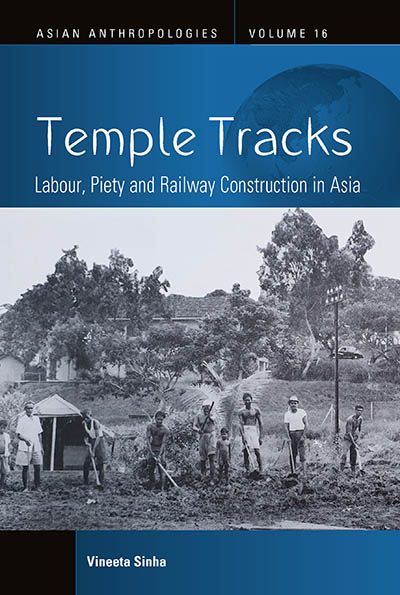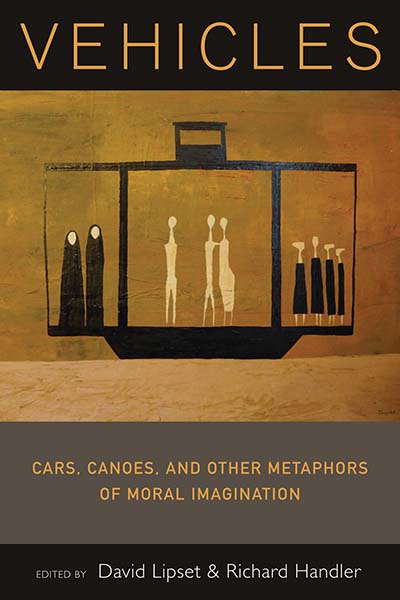Home -> Browse
-

Globalizing Automobilism
Exuberance and the Emergence of Layered Mobility, 1900–1980
Mom, G.
Why has “car society” proven so durable, even in the face of mounting environmental and economic crises? In this follow-up to his magisterial Atlantic Automobilism, Gijs Mom traces the global spread of the automobile in the postwar era and investigates why adopting more sustainable forms of mobility has proven so difficult. Drawing on archival research as well as wide-ranging forays into popular culture, Mom reveals here the roots of the exuberance, excess, and danger that define modern automotive culture.
Subjects: Transport Studies History: 20th Century to Present Cultural Studies (General) Mobility Studies
-

Migration by Boat
Discourses of Trauma, Exclusion and Survival
Mannik, L. (ed)
At a time when thousands of refugees risk their lives undertaking perilous journeys by boat across the Mediterranean, this multidisciplinary volume could not be more pertinent. It offers various contemporary case studies of boat migrations undertaken by asylum seekers and refugees around the globe and shows that boats not only move people and cultural capital between places, but also fuel cultural fantasies, dreams of adventure and hope, along with fears of invasion and terrorism. The ambiguous nature of memories, media representations and popular culture productions are highlighted throughout in order to address negative stereotypes and conversely, humanize the individuals involved.
Subjects: Refugee and Migration Studies Anthropology (General) Sociology Transport Studies
-

Temple Tracks
Labour, Piety and Railway Construction in Asia
Sinha, V.
The notions of labour, mobility and piety have a complex and intertwined relationship. Using ethnographic methods and a historical perspective, Temple Tracks critically outlines the interlink of railway construction in colonial and post-colonial Asia, as well as the anthropology of infrastructure and transnational mobilities with religion. In Malaysia and Singapore, evidence of religion-making and railway-building from a colonial past is visible in multiple modes and media as memories, recollections and ‘traces’.
Subjects: Transport Studies Refugee and Migration Studies Anthropology of Religion
Area: Asia-Pacific
-

Vehicles
Cars, Canoes, and Other Metaphors of Moral Imagination
Lipset, D. & Handler, R. (eds)
Metaphor, as an act of human fancy, combines ideas in improbable ways to sharpen meanings of life and experience. Theoretically, this arises from an association between a sign—for example, a cattle car—and its referent, the Holocaust. These “sign-vehicles” serve as modes of semiotic transportation through conceptual space. Likewise, on-the-ground vehicles can be rich metaphors for the moral imagination. Following on this insight, Vehicles presents a collection of ethnographic essays on the metaphoric significance of vehicles in different cultures. Analyses include canoes in Papua New Guinea, pedestrians and airplanes in North America, lowriders among Mexican-Americans, and cars in contemporary China, Japan, and Eastern Europe, as well as among African-Americans in the South. Vehicles not only “carry people around,” but also “carry” how they are understood in relation to the dynamics of culture, politics and history.
Subjects: Transport Studies Anthropology (General) Cultural Studies (General)





